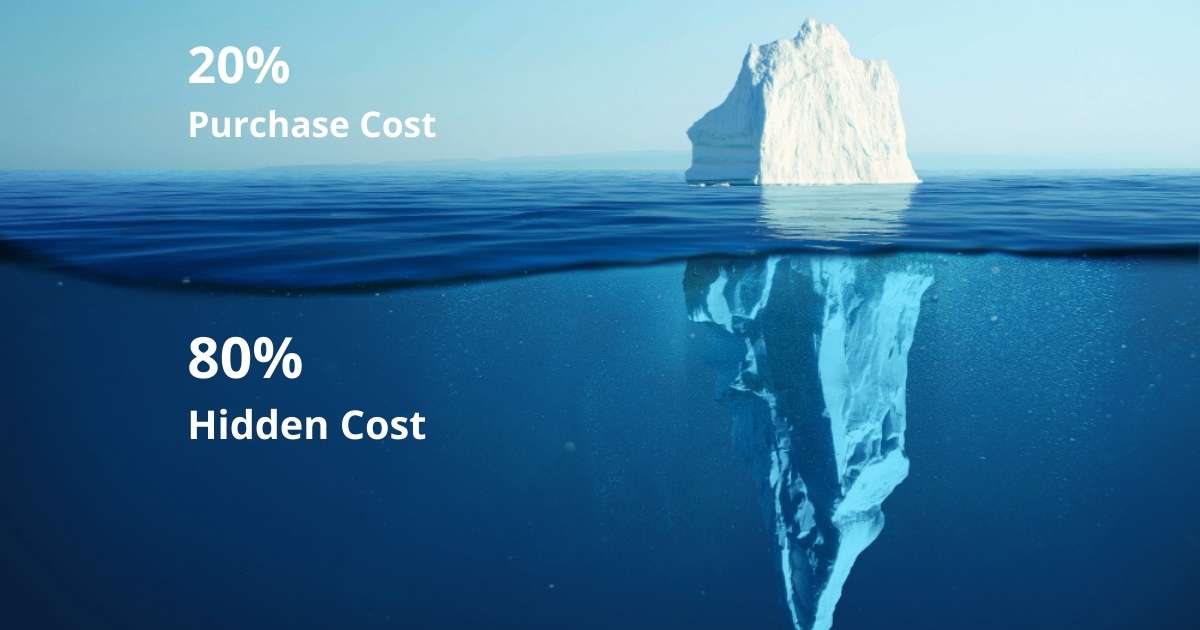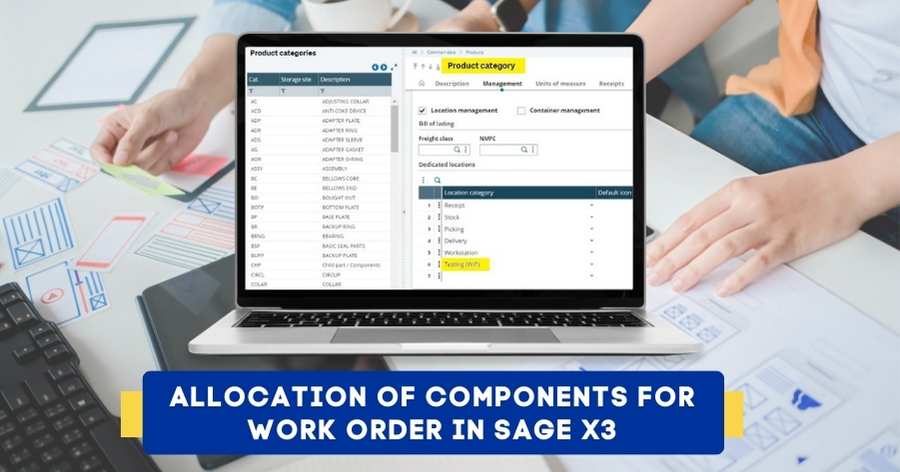What is Waste Management ERP?
Waste Management ERP is a unified and sophisticated solution that provides cutting-edge technology that automates various processes of waste management, from waste pickup to final disposal, documents activities at every level, and provides essential tools for tracking, managing, transporting, and disposing of waste products.
ERP software for waste management and recycling enables organizations to manage waste effectively, minimize environmental risks, and lower the potential for contamination. It provides rigorous tracking tools and end-to-end transparency throughout pan-organizational waste disposal activity. It enables organizations to oversee the work at every level and stay compliant with local environmental regulations and best industry standards.
Overview of the Waste Management Industry in India
Every year, India produces 70 million metric tons of municipal solid waste. The waste management industry in India is estimated to be $15 Billion in size. The landfill is one of the most widely used methods of waste disposal throughout India.
The high-density Indian population, rapid urbanization, and widespread industrial activities are some of the prominent factors contributing to this growth rate. Many Indian startups have come up with innovative waste management ideas to transform waste into wealth using various environmentally friendly methods.
You May Also Like: What Is The Future of ERP For Fertilizer Industry?
Challenges Faced by the Waste Management Industry
- Lack of Adequate Infrastructure
One of the key problems faced by the waste management and recycling sectors is the lack of adequate infrastructure facilities required for waste collection, storage, transportation, and disposal. The lack of proper infrastructure has given rise to illegal dumping. Debris accumulation caused by illegal dumping can pose a threat to a healthy and clean environment and risk disease outbreaks.
- Financial Constraints
Waste management programs across India are often inadequately funded. Inadequate financial backing can lead to improper treatment of medical waste, hazardous waste, and toxic waste, besides following unsustainable practices such as open dumping and open burning of waste material. This can further lead to various problems such as soil pollution, water contamination, air pollution, and a plethora of negative consequences for public health and the environment.
- Technological Challenges
Waste management organizations in India lack access to modern technologies for proper waste disposal. For example, they lack access to smart waste bins that are capable of automatically sorting recyclable and non-recyclable items using artificial intelligence and object recognition technologies.
Future Trends in the Waste Management Industry
- Focus on Waste Prevention And Sustainable Production Patterns
Sustainable manufacturing in India is still at a nascent stage. However, a small number of industries are shifting their focus from managing waste to preventing waste and marching towards India’s sustainability goals. There is a trend among these industries to use sustainable and environment-friendly materials, such as reusable water bottles and refillable food containers, instead of single-use plastic items.
- Government Incentives for Adopting Green Technology
The Indian government is providing incentives to businesses to invest in the production of sustainable and reusable products. The government has rolled over various PLI schemes and incentives for businesses that align with India’s commitment to sustainability at a global level. For example, the GOI has allocated $2.5 billion in incentives for businesses relying on hydrogen made from renewable energy.
- Reducing Reliance on Fossil Fuels
In recent years, India has seen growth in the waste-to-energy sector. This sector involves burning municipal solid waste to produce clean electricity. The process of generating clean electricity goes through different stages. For example, in the initial phase, the waste is dumped from garbage trucks and burned to release heat. Large boilers and high-pressure steam are used to turn the blades of turbines and produce clean electricity.
You May Also Like: What Is ERP for Wood Industry?
Benefits of Using Waste Management ERP
- Unified System of Information Management
Best Waste Management ERP builds a centralized database containing information about dumping and collection sites, the type and quantity of waste materials, resources allocated for each site, and so on. It provides end-to-end tracking and monitoring of current tasks for faster disposal of waste within the stipulated period and integration with existing legacy systems. Integrating data into a centralized system enables faster and smoother collaboration and streamlined task completion.
- Stricter Compliance
ERP for Waste Collection documents every bit of information at every level, bringing transparency throughout the entire waste disposal procedure. The ERP solution ensures every single activity is recorded to comply with the various protocols and regulations laid down by the government for waste disposal and recycling systems. Stricter compliance can reduce the likelihood of fines, penalties, lawsuits, and a negative brand reputation.
- Preventive Maintenance
Waste disposal and recycling activities depend on many vehicles and equipment for collection, storage, tracking, and transportation activities. Waste Collection ERP provides preventive maintenance modules that ensure smooth operations and reduce instances of vehicle downtime, disruptions, and equipment failure. Moreover, such routine maintenance activities ensure the identification and fixing of issues before they turn into major tragedies.
- Dynamic Quotes Generation
The Quotes Generation feature in one of the ERP modules helps sales representatives automatically generate accurate and realistic quotes for the company’s products and services. ERP implementation automates and speeds up the cumbersome process of providing accurate quotes for different waste management operations. It eliminates the long, tedious process of manual data entry and makes the business more responsive to the customer’s requirements.
- Effective Resource Utilization
Waste management businesses often work on multiple waste management projects at diverse locations. Best Waste Management ERP makes it easier to delegate tasks to specific workers and keep track of their activities by project priorities. Not only does it prevent underperforming and overperforming workers, but it also results in higher productivity, cost reductions, and time savings. ERP systems help project managers get better visibility and achieve the desired results.
- Budget Management
The Budget Management feature in ERP Collection helps waste management businesses allocate a budget for each project and keep monthly and yearly track of it. The financial reporting feature in the Waste Management ERP software allows tracking income and expenditures for multiple projects with a single click.
- Asset Management
Assets are the backbone of every industry. The waste and recycling industry is not an exception. ERP for Waste Collection contains an asset management module that provides pan-organizational data and a complete record of all assets, right from the procurement of assets to disbursement, under one roof. The best ERP software in India automates the process of generating asset-specific reports that provide powerful data analytics and other vital information such as asset life cycle, asset acquisition date, cost of the asset, depreciation value, and disbursement cost of the asset.
- Financial Management
Waste Management Systems encompasses financial management features that turn your paperwork into digital documents. The Accounts Receivable Automation module streamlines the process of obtaining customer payments and accessing the creditworthiness of the customers. In contrast, the Accounts Payable Automation module automates the handling of unpaid debts to third parties, seeking credit lines and favorable payment terms.
Conclusion
ERP allows waste management and recycling companies to track all procedures, from waste collection and temporary storage to final disposal, and oversee actions taken at all levels. It makes the entire process hassle-free and ensures that all tasks are performed in compliance with the local regulatory framework.
Sage X3 is business-critical software that empowers waste management companies with solid control over project management, contractual management, and waste disposal activity. Waste management companies can leverage automation, analytical capabilities, and business intelligence tools to enhance business operations, improve capabilities, optimize task scheduling, and capture all critical information (such as site location, waste type and quantity, vehicles used, and invoices) in real-time.







